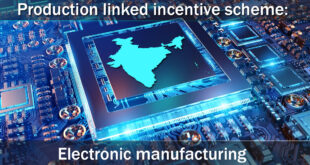- Indian banks are reluctant to lend to electric-bus makers for supply to ailing State transport operators over concerns on recovery of dues, hurting India’s goal of curbing vehicle emissions, said banking, industry and government sources.
- Lack of funding is limiting the ability of e-bus makers to participate in Central government tenders to supply to States, the sources told Reuters, threatening to slow the electrification of major public transport now reliant on diesel.
- India wants to deploy 50,000 e-buses over the next 4-5 years at an estimated cost of ₹1 trillion. As of now, 6,740 e-buses have been approved by the Central government that provides incentives for related infrastructure, of which close to a third have been deployed in States.
- A senior bank official, who did not wish to be named, said it was risky to lend to manufacturers to build buses for the State transport undertakings (STUs), as many are in bad financial condition because they are often forced to keep fares low.
- Mahesh Babu, chief executive of e-bus maker Switch Mobility, said: “most of the contracts related to STUs are seen by banks as high risk” and called for payment security for bus makers.
‘Delays, but no defaults’
- “There have been no instances of default in India though there are delays,” said an STU official in north India, but added that “a payment security mechanism may instil confidence among lenders”.
- Each electric bus costs ₹12.5 million, about five times that of a diesel one.
- Financing diesel buses is safer because in the case of default, banks can repossess the asset and easily redeploy it. E-buses need charging and other infrastructure that may not be available everywhere, said another banker.
- Nevertheless, the government-run Convergence Energy Services Ltd., which aggregates demand from States for electric vehicles, on Thursday issued a tender to procure 6,450 e-buses — the country’s largest so far.
- Switch Mobility, the EV arm of Ashok Leyland, PMI Electro and JBM Auto responded to the latest tender. But notable exceptions were Tata Motors, India’s largest commercial vehicle manufacturer, and Olectra Greentech, the Indian technology partner of Chinese auto major BYD, two sources said.
- A Tata Motors spokesperson said there was a need for “adequate safeguards with appropriate payment security mechanisms” to make such ventures bankable. The firm would look at participating in future tenders once such measures were in place, the spokesperson said.
- The road transport sector accounts for 13% of carbon emissions in India.
- Buses are one of the most significant modes of public transport and STUs own and operate 1,50,000 buses that carry 70 million passengers daily.
SOURCE: THE HINDU, THE ECONOMIC TIMES, PIB
 Chinmaya IAS Academy – Current Affairs Chinmaya IAS Academy – Current Affairs
Chinmaya IAS Academy – Current Affairs Chinmaya IAS Academy – Current Affairs



